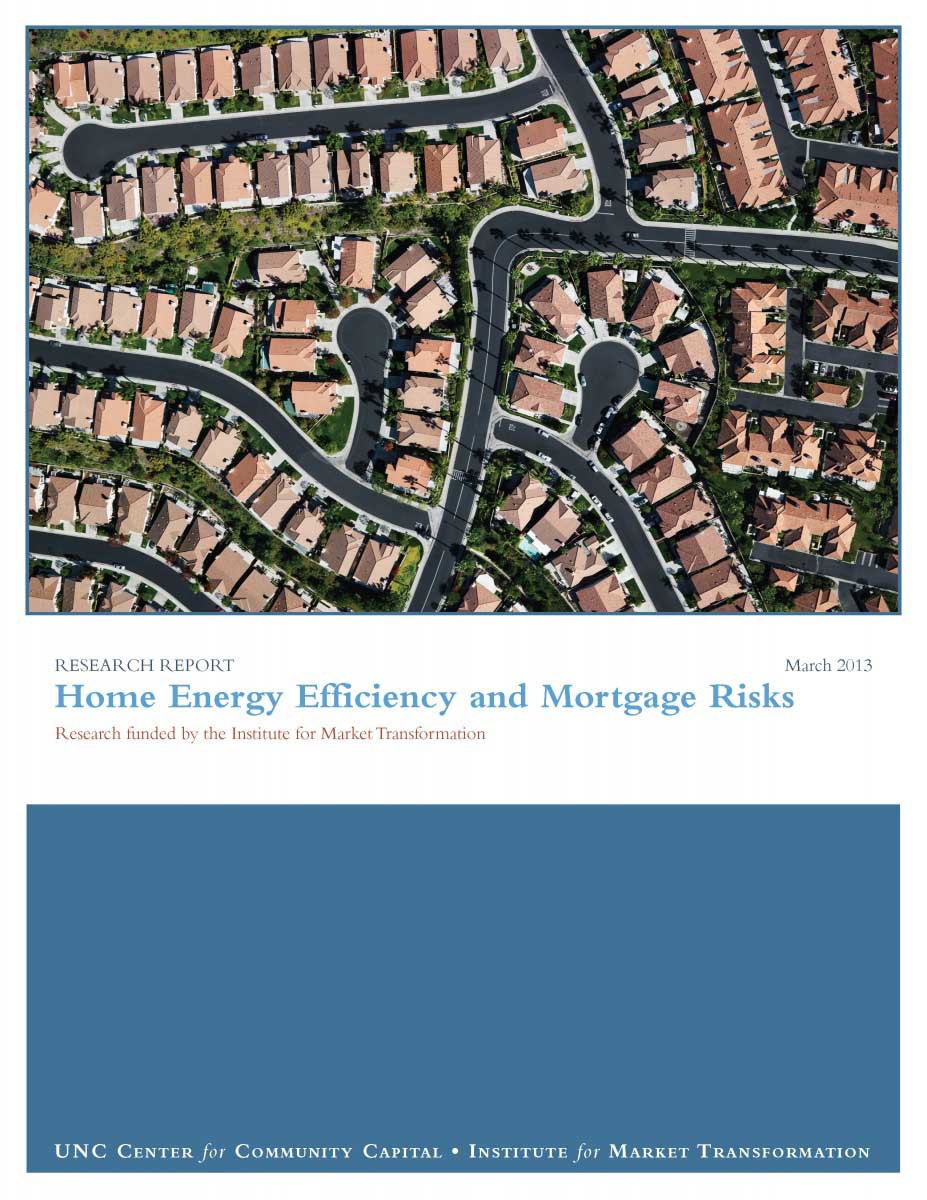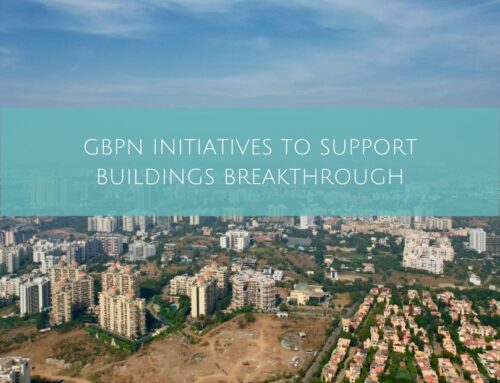[Report] Owners of Energy-Efficient Homes are less Likely to Default on Mortgages
“Home Energy Efficiency and Mortgage Risks” was released today (March 19) by the Institute for Market Transformation (IMT), the GBPN US Hub and the University of North Carolina at Chapel Hill Center for Community Capital.

The new study shows the risk of mortgage default is one-third lower for energy-efficient, ENERGY STAR-rated homes – a factor lenders and Congress should consider when making mortgage loans and policy.
The new report is the first academic study to assess the linkages between home energy efficiency and mortgage risks. It uses a sample of 71,000 home loans from 38 states and the District of Columbia, all derived from CoreLogic’s mortgage database. The sample is restricted to single-family, owner-occupied houses whose loans originated during 2002-2012 and were used for purchase only.
About 35 percent of the houses in the sample were ENERGY STAR-rated for efficiency, with the rest forming a control group. Controlling for other factors, the odds of a mortgage default on an ENERGY STAR residence are one-third lower than those of a home in the control group. A mortgage holder on an ENERGY STAR residence is also one-quarter less likely to prepay. Since lenders consider prepayment a risk, these loans are potentially more valuable to them.
“It stands to reason that energy-efficient homes should have a lower default rate, because the owners of these homes save money on their utility bills, and they can put that money toward their mortgage payments,” said Cliff Majersik, executive director of IMT. “We long believed this to be the case, and now this study proves it. Successful housing market reforms will require reconsidering the risk factors in mortgage default, including energy costs.”
The authors recommend that Congress consider the study findings in its deliberation of current and proposed legislation to improve the accuracy of mortgage underwriting. They also conclude that lenders may want to require an energy audit or rating as part of the mortgage underwriting process, and that federal housing agencies could promote underwriting flexibility for mortgages on energy-efficient homes.
Contact at IMT:
Amanda Hurley, amanda@imt.org
Share This Story, Choose Your Platform!
Stay in touch with how we’re transforming the buildings sector
GBPN runs innovative building policy reform programs in key regions around the world that aim to tackle the climate emergency by decarbonising the buildings sector. Stay up to date with our newsletter.
Stay in touch with how we’re transforming the buildings sector
GBPN runs innovative building policy reform programs in key regions around the world that aim to tackle the climate emergency by decarbonising the buildings sector. Stay up to date with our newsletter.






